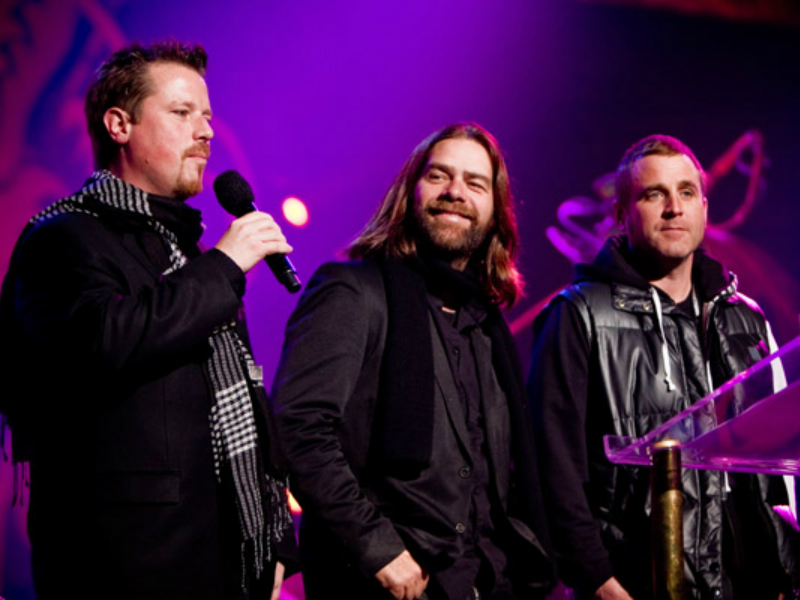My wife and I had only been in St. John’s for a few hours, when we ducked into a bakery in search of a snack. Sure enough, we found a duo playing traditional Newfoundland and Celtic folk music. We sat down to enjoy a few tunes, which we preferred to the pastries (Newfoundland is more celebrated for its music than its baked goods).
Music was one of the main reasons we decided to visit. I’m a huge fan of the Newfoundland band Great Big Sea, which plays a blend of original and traditional songs, tinged with the essence of rock. I wanted to see the land that inspired their singing.
This is why I was a bit surprised when, after playing a number of lovely Celtic classics, the two musicians paused to introduce a decidedly non-Newfoundland nigun. “A Nakht in Gan Eyden,” the bearded accordionist explained, was a traditional klezmer melody, meaning “A Night in the Garden of Eden.” The American-born singer with Jewish roots who has now made the island his home proceeded to play a beautiful Jewish tune.
It was a fitting introduction to St. John’s on erev Shabbat. Shortly thereafter, we went to Beth El Synagogue for services. I had been invited to give a brief talk on my research, which focuses on the development of the idea of “cultural pluralism,” the ancestor to what Canadians call “multiculturalism.” Only five people attended, apart from my wife and I, but I felt honoured to be there nonetheless.
I couldn’t help but share my experience from earlier that day. It was especially relevant because I spoke about Horace Meyer Kallen (1882-1974), the German-born American-Jewish philosopher who coined the term “cultural pluralism.” In 1915, Kallen had used a musical metaphor to describe his vision: “the symphony of civilization.” The different instruments of an orchestra represented different ethnocultural groups playing together in harmony.
READ: WEINFELD: THE BEAUTIFUL GAME; THE HORRIBLE WAR
My own relationship with music is something of a strange one. I never played any instrument, nor could I sing very well (though I always loved karaoke).
I had my favourite singers, bands and songs, but the ones I loved best were those whose music extended beyond the individual artists and became representative of communities and peoples. I gravitated to folk music, klezmer, country and Celtic.
In his first novel, The Joke, Czech author Milan Kundera used his background in musicology to explain the difference between folk music and poetry. “A folk song is born differently from a formal poem,” he wrote. “Poets create in order to express themselves, to say what it is that makes them unique. In the folk song, one does not stand out from others but joins with them. (The folk song) was passed from generation to generation, and everyone who sang it added something new to it. Every song had many creators, and all of them modestly disappeared behind their creation.”
This is how I feel when I’m at a Great Big Sea concert, or when I’m listening to a cantor sing in shul. It’s always wonderful to have a talented musician or singer at the helm, but the musical experience appeals to me regardless, because it is communal and horizontal. Instead of putting the singer on a pedestal, an object of worship, the artist is on the same plane as the audience. The emphasis shifts from listening, to singing and dancing – things everyone can actively participate in together.
Culture can hold a special relationship with a particular people, community or even a country, but that relationship is not an exclusive one. Culture can be appropriated inappropriately, but it can also be shared, borrowed and blended for the enjoyment of all. When night falls in the Garden of Eden, the music is beautiful, both exotic and familiar, full of songs from away and songs from home.
